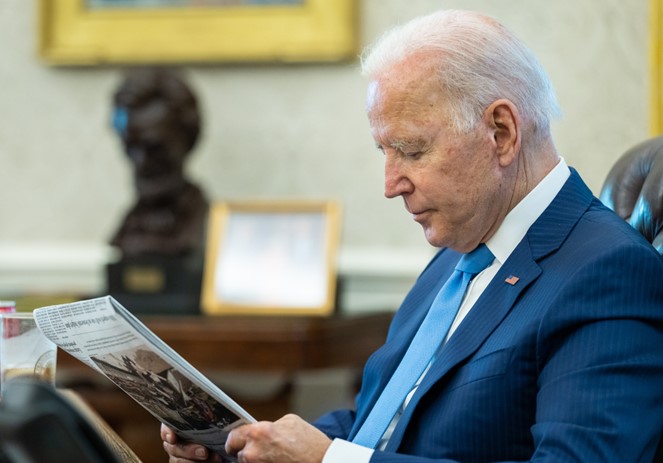
Could the Debt Ceiling Challenges be Ironed Out Before the Eleventh Hour?
The market-moving potential of key meetings in Washington on Wednesday, February 1st, includes more than the FOMC decision on monetary policy. Up the road from the Federal Reserve building, also scheduled for the first of the month, will be another important meeting for the markets. House of Representatives Speaker Kevin McCarthy will be headed to the Oval Office for a discussion to resolve other risks to the US economy, risks that could quickly spin out of control. High on the list is the national debt limit. Without a plan, the inability for the government to borrow above the current debt ceiling, could impact trust in the credit rating of US debt. This would move bond prices lower as rates would naturally rise at even the smallest prospect of a US default.
Why It’s Critical to Markets
A debt limit increase would allow the government to finance existing obligations. These obligations have, as in the past, expanded beyond the borrowing cap imposed on the US Treasury. An inability to roll existing maturing debt or afford additional interest rate costs would cause a default. The reverberations of this can not be understated as US Treasuries, like US currency, is the backbone of the worlds financial system.
An actual default could precipitate a mega financial crisis, threatening jobs, asset values, and trust.
The US reached its technical borrowing limit of $31.4 trillion in January. US Treasury Secretary Yellen enacted planned accounting moves that will allow the federal government to pay its bills until sometime in June by postponing some obligations. Before then, a solution must be devised by lawmakers that would then be signed by the President in order for the government to take on new debt and fund its responsibilities.
The Meeting Agenda
President Biden and House of Representatives Speaker Kevin McCarthy will meet at the White House to find common negotiating ground to avert a default. They currently seem far apart on a potential solution as the President’s party wishes to raise the debt ceiling quickly and resume business as usual in DC, while many in the House Speaker’s party are looking for concessions and spending cuts before they agree to raise the borrowing limit.
Republican lawmakers don’t currently support a measure that would let the country pay its debts unless there is agreement on various spending cuts going forward. The White House, which must sign or veto anything passed in Congress, has said raising the debt limit is critical and non-negotiable, citing the risk to the US economy from a default.
Both Biden and McCarthy will want to come away from this meeting with something their constituents and the onlooking financial markets can be comfortable with, and at the same time provides assurance to the world that is also looking on.
Congress has always passed an increase in the debt limit. Since 1960, Congress has acted 78 separate times to permanently raise, temporarily extend, or change the definition of the debt limit. Congressional leaders in both parties have believed in the end that it is best. However, the negotiations tend to go to the eleventh hour with escalating showmanship on all sides.
The eleventh hour comes sometime in June. Skeptics of any success of this face-to-face talk have a long history on which to hang their skepticism. However, McCarthy being new to his role and Biden having an aggressive spending agenda may help to shape a quicker outcome than in the past.
On Sunday, January 9th, McCarthy said that Republicans would not allow a US default that cuts into Social Security and Medicare, this would be “off the table” in any debt ceiling negotiations.
“The President will ask Speaker McCarthy if he intends to meet his Constitutional obligation to prevent a national default, as every other House and Senate leader in US history has done,” a White House spokesperson said.
The statements following, both by the White House and the Speakers camp, may cause a sigh of relief or elevate the level of panic.
Politics Involved
House Speaker McCarthy, in order to be elected speaker, agreed to rules that made it easier for his party to oust him over policy disagreements. He said he’d focus on discretionary spending, which has increased dramatically in the past two years with infrastructure and semiconductor legislation and a green-energy bill supported by Democrats.
“I think everything, when you look at discretionary, is sitting there,” McCarthy said. “We shouldn’t just print more money, we should balance our budget. So I want to look at every single department. Where can we become more efficient, more effective and more accountable?”
Biden, who is contemplating seeking re-election in 2024, has been sharply critical of McCarthy’s Republican caucus. He characterized them as “fiscally demented” earlier this month, threatened to veto their legislation and accused them of trying to balloon the deficit, favoring billionaires, raising middle-class taxes and threatening benefit programs.
Take Away
In the past, debt ceiling news typically made the top headline when the negotiations are truly in the eleventh hour. The meeting on Wednesday between two politicians that have a lot to gain from a successful outcome may avert a late Spring crisis and provide calm in what is already a cloudy economic environment. An agreement would be positive for the markets – lack of agreement will likely be taken as business as usual.
Managing Editor, Channelchek
Sources
https://www.whitehouse.gov/cea/written-materials/2021/10/06/the-debt-ceiling-an-explainer/